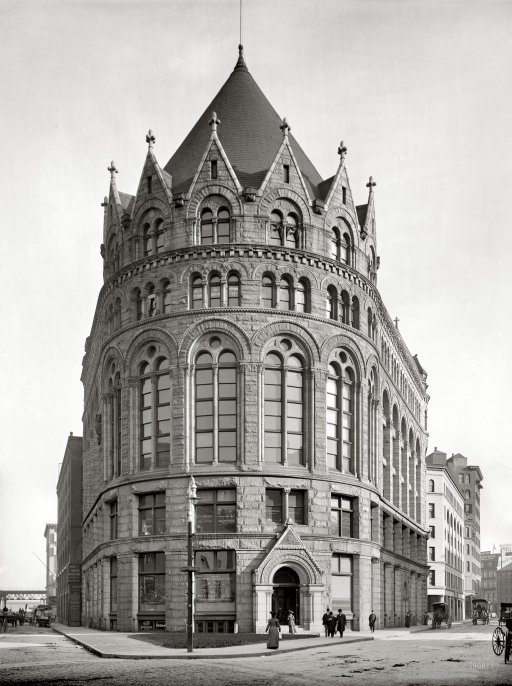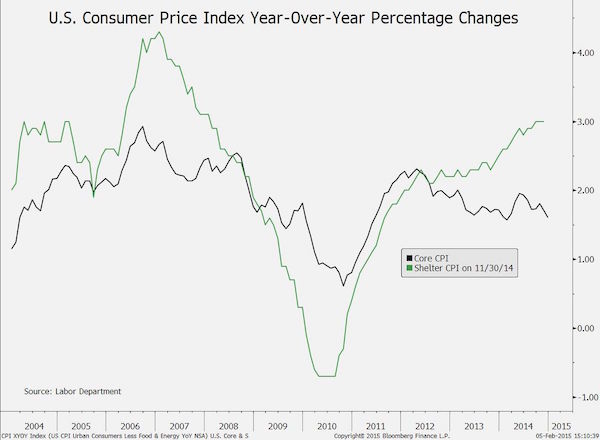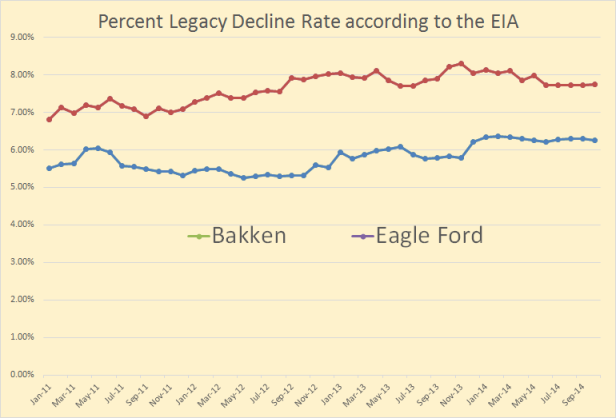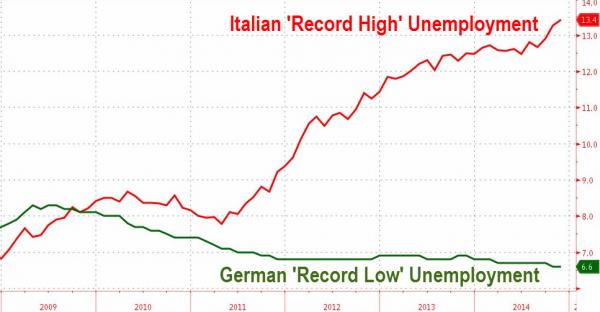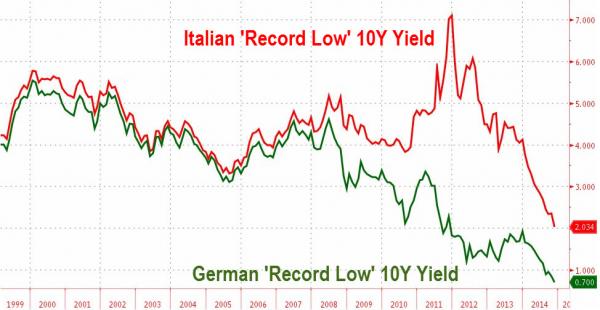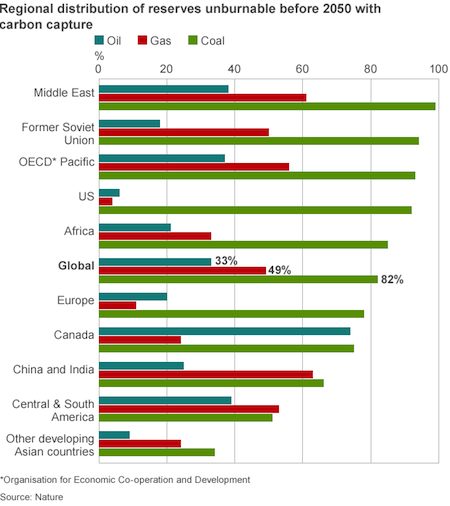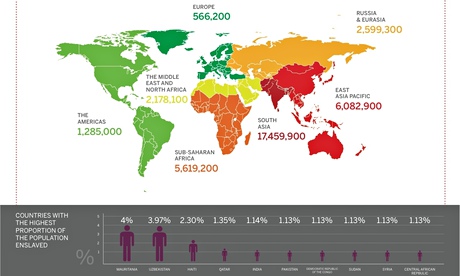
Lewis Wickes Hine Child labor at Gorenflo Canning Co., Biloxi, Mississippi 1911



Why am I thinking June? Is it because everybody says it won’t be?
• Yellen Sees Gradual Pace of Rate Increases Starting This Year (Bloomberg)
Chair Janet Yellen said she expects the Federal Reserve to raise interest rates this year, and that subsequent increases will be gradual without following a predictable path. “I expect that conditions may warrant an increase in the federal funds rate target sometime this year,” Yellen said Friday in remarks prepared for delivery in San Francisco. She and fellow policy makers “generally anticipate that a rather gradual rise in the federal funds rate will be appropriate over the next few years.” After the initial increase, officials won’t follow “any predetermined course of tightening” that involves similar-sized increases at regular intervals, Yellen said.
“The actual path of policy will evolve as economic conditions evolve, and policy tightening could speed up, slow down, pause, or even reverse course depending on actual and expected developments in real activity and inflation,” she said. Policy makers last week opened the door to an interest-rate increase as soon as June, while also signaling they’ll go slow once they get started. The benchmark federal funds rate has been kept near zero since December 2008. Rates near zero helped cause a “sizable reduction” in labor market slack, and a modest rate increase is “highly unlikely” to halt that progress, Yellen said.[..]
The labor market is “likely to improve further in coming months,” Yellen said. At the same time, progress on meeting the Fed’s inflation goal has been “notably absent.” Some of the weakness in inflation “likely reflects continuing slack” in labor markets. Despite disappointing retail-sales data, she said consumer spending probably will “expand at a good clip this year given such robust fundamentals as strong employment gains, boosts to real incomes from lower energy prices, continued increases in household wealth, and a relatively high level of consumer confidence.”

End of a line.
• Housing Contribution To US GDP Lowest In Post-War Era (Zero Hedge)
Deutsche Bank is out predicting that a sluggish US housing market is likely to impact the supply of MBS going forward. As DB notes, housing isn’t the GDP contributor it once was and not by a long shot. Not only that, but when it comes to recoveries, the housing market’s GDP contribution was 7 times below its post WW2 average in year one and has fared even worse since. Here’s DB with more:
The contribution of housing to US GDP continues to run at some of the lowest levels since the end of World War II. New construction of single- and multi-family homes, renovations, broker fees and the like still only make up a bit more than 3% of current GDP, well below the post-war average of 4.7%. Not only has the level of lift from housing come in low, but it has bounced out of the last official recession slowly, too. Housing on average has contributed a half a percentage point to GDP a year after the end of every post-war US recession. This time around, housing added only 7 bp. And the contribution of housing in the second and third years after the recent recession also has fallen well below post-war averages.

“Even if the pace is slackening, the Chinese are still building high-rise apartments which will remain empty and airports, roads, rails and bridges that are hideously redundant.”
• The Bottom’s Not In – This Market Is Dumber Than A Mule (David Stockman)
They were trying to put in a bottom – again! The sell-off earlier this week amounted to the sixth sizeable “dip” since November 20 – so the market’s ingrained reflex was back at work all afternoon, trying to scoop up the “bargains”. But the roundtrip to the flat-line shown below is not a classic “wall of worry” and its not a “bottom” that’s being put in. This market is dumber than a mule, and the nation’s central bank and its counterparts around the world have made it so. The plain truth is that six years of torrential money printing and worldwide ZIRP have not happened with impunity. On the one hand, massive, sustained and universal financial repression caused an artificial growth and investment boom in much of the world, especially China and the EM, which has now run out of steam and is visibly and rapidly cooling.
There is probably no better proxy for the global investment boom than the spot price of iron ore because it captures China’s massive infrastructure construction spree and the waves of mining, shipbuilding, steel-making and construction materials spending that it set off all over the world. But this huge tidal wave has now crested, leaving behind the worst of both worlds – cooling demand and still expanding supply. For the first time since around 1980, China’s steel consumption is projected to fall in 2015 – with demand slumping from 830 million tons last year toward 800 million tons, and that is just the beginning as China’s credit-fueled construction frenzy finally comes to a halt. In fact, during the boom that took iron ore prices from a historic level of around $20-30 per ton to a peak of nearly $200 in 2011, China’s iron and steel capacity grew like topsy. Production capacity expanded from about 200 million tons at the turn of the century to upwards of 1.1 billion tons at present.
Yet this year’s decline of demand to around 800 million tons does not begin to reflect the coming adjustment. That’s because there is still a residual component of one-time demand in that number that is in no way sustainable. Even if the pace is slackening, the Chinese are still building high-rise apartments which will remain empty and airports, roads, rails and bridges that are hideously redundant. Eventually that will end because even the red capitalist rulers in Beijing are terrified of China’s towering mountain of debt – $28 trillion and still rising by hundreds of billions every month. Yet underneath this one-time explosion of demand for steel, aluminum, copper, concrete and the rest of the materials slate is something called sell-through demand. The latter reflects the sustainable level of demand for replacement of long-lived assets like bridges and shorter-term durables like cars and appliances. In the case of steel, that sustainable “sell through” demand level could be as low as 500-600 million tons or hardly half of China’s steel production capacity.

“For the first time since the early 20th century, there are the elements of a genuine revolution brewing in Europe, a continent plagued by violence throughout its history.”
• Greek Crisis Nears A Turning Point (MarketWatch)
The simmering crisis in Greece has the potential to become one of those seemingly small events that leads to big consequences. The election of a radical government by a public exhausted from five years of debilitating recession, the war of words conducted by that government in the face of the iron fist of establishment power in the European Union, and the expected resolution either in the form of a total retreat by the Greek government and its collapse or an exit from the euro – all this seems relatively small on the scale of global events. But few expected the assassination of an Austrian royal heir to start World War I, or the shelling of a military depot in Gdansk by German forces in 1939 to lead to the conflagration of World War II, or, for that matter, the strike in 1980 by Polish trade union Solidarity in that same port city to lead to the unraveling of the Soviet empire.
The Greek crisis could well become a similar turning point in history. Amid all the posturing, dogmatism and bad faith in the standoff between the government of Greek Prime Minister Alexis Tsipras and European and international monetary officials is a genuine challenge not only to the postwar integration of Europe but the entire foundation of the peace ushered in during that period. So if you’re sick and tired of hearing about Greece, think again. For the first time since the early 20th century, there are the elements of a genuine revolution brewing in Europe, a continent plagued by violence throughout its history. The bumbling, short-sighted policies of the German government under Chancellor Angela Merkel and the spineless Brussels bureaucracy dominated by Berlin are in many ways similar to previous miscalculations by European leaders that plunged Europe and the world into disaster.
And it is not helped by a U.S. foreign policy in disarray under the weak and uneven leadership of a president ill-equipped to deal with global realpolitik. The Greek government itself seems to be operating in a parallel universe of false hopes. The economy minister, George Stathakis, said he is optimistic Greece will reach an agreement with international lenders next week even though their stated goals remain diametrically opposed.

No, it’s not.
• Austerity Is Greece’s Only Hope (Hans-Werner Sinn)
The euro has brought a balance-of-payments crisis to Europe, just as the gold standard did in the 1920s. In fact, there is only one difference between the two episodes: During today’s crisis, huge international rescue packages have been available. These rescue packages have relieved the eurozone’s financial distress, but at a high cost. Not only have they enabled investors to avoid paying for their poor decisions; they have also given overpriced southern European countries the opportunity to defer real depreciation in the form of a reduction of relative prices of goods. This is necessary to restore the competitiveness that was destroyed in the euro’s initial years, when it caused excessive inflation.
Indeed, for countries like Greece, Portugal, or Spain, regaining competitiveness would require them to lower the prices of their own products relative to the rest of the eurozone by about 30%, compared to the beginning of the crisis. Italy probably needs to reduce its relative prices by 10-15%. But Portugal and Italy have so far failed to deliver any such “real depreciation,” while relative prices in Greece and Spain have fallen by only 8% and 6%, respectively. Revealingly, of all the crisis countries, only Ireland managed to turn the corner. The reason is obvious: its bubble already burst at the end of 2006, before any rescue funds were available.
Ireland was on its own, so it had no option but to implement massive austerity measures, reducing its product prices relative to other eurozone countries by 13% from peak to trough. Today, Ireland’s unemployment rate is falling dramatically, and its manufacturing sector is booming. In relative terms, Greece received most of Europe’s bailout money and showed the largest increase in unemployment. The official loans granted to the country by the European Central Bank and the international community have increased more than sixfold during the past five years, from €53 billion ($58 billion) in February 2010 to €324 billion, or 181% of GDP, now. Nevertheless, the unemployment rate has more than doubled, from 11% to 26%.

“Any decision to remove ELA would effectively force Greece out of the eurozone by pulling the plug..”
• Varoufakis Denies Resignation, Greeks Accused Of “Gambling” Away Trust (Teleg.)
Responding to a story in Bild on Friday morning, who quoted a Greek government source saying that it was only a matter of time until Mr Varoufakis resigned, the “rock-star” former academic tweeted he found the reports of his apparent demise, “amusing”. A Greek government official had earlier dismissed the reports, telling Reuters: “None of this is true, it’s far from reality.” Mr Varoufakis has become a controversial figure in the fractious negotiations between Greece and its eurozone creditors. Tensions reached a peak when the minister was caught up in a farcical argument over whether he “stuck the middle finger” to the eurozone giant during a lecture he gave in 2013. The finance minister, who is not a member of parliament for the Syriza party, also walked out on an TV interview earlier this month, after he was questioned about being a “liability” to his government.
Athens has been scrambling to make repayments to its creditors while continuing to pay wages and pensions. The government now faces another €2.4bn cash squeeze in April, including a €450m loan repayment to the IMF on April 9. In a bid to finally release €7.2bn in bail-out funds, Greece has promised to deliver a full reform list to creditors by Monday. But in a sign of the frayed relations between the debtor country and its paymasters, Germany’s Bundesbank chief accused the Leftist government of betraying the trust of its creditors. “Until the autumn, an improvement in the economy had been discernible. But the new government has gambled away a lot of trust,” said Jens Weidmann, an ardent critic of financial relief for Athens. Mr Weidmann added he did not “buy the argument that they are financially overburdened,” referring to the state of Greece’s finances.
As part of its efforts to stay solvent over the next few weeks, Greece has requested a €1.9bn transfer of profits held by the ECB, from the holdings of Greek government bonds. So far, the ECB has rebuffed all Greek pleas to alleviate their cash squeeze. The central bank has been keeping Greek banks alive through the provision of emergency liquidity assitance (ELA), after it stopped its ordinary lending to the country after Syriza’s election. Any decision to remove ELA would effectively force Greece out of the eurozone by pulling the plug on the country’s stricken lenders and giving way to capital controls.

“We are creating ambiguity with the creditors intentionally because they have to know that we are prepared for a rift, otherwise you can’t negotiate..”
• Alternate Greek FinMin Tsakalotos Says Athens ‘Prepared For Rift’ (Kathimerini)
Alternate Finance Minister Euclid Tsakalotos on Friday made waves by saying that the Greek government was “always prepared for a rift.” Tsakalotos, who is the ministry’s key official for international economic relations, made the comment during an interview on Star television channel, prompting a flurry of reactions and criticism on social media. Tsakalotos was speaking just two days after Finance Minister Yanis Varoufakis was caught on camera during a visit to Crete on the occasion of Greece’s Independence Day telling a citizen that he hoped Greeks would continue to back the government “after the rift.” Varoufakis’ comment was subsequently played down by SYRIZA commentators who said he might have been referring to a possible rift with vested interests in Greece rather than with the country’s creditors.
Apparently in the same vein, Tsakalotos said on Friday, “If you don’t entertain the possibility of a rift in the back of your mind then obviously the creditors will pass the same measures as they did with the previous [government].” “We are creating ambiguity with the creditors intentionally because they have to know that we are prepared for a rift, otherwise you can’t negotiate,” he said. He added that the new government is intent on backing “those who lost a lot in the crisis, and that we are prepared, if things do not go well, for a rift.” Prior to his comments, Tsakalotos took part in a meeting with Varoufakis and Prime Minister Alexis Tsipras.

Motions. Through. Going.
• Greece Submits New List Of Reforms To Unlock Further Aid (Reuters)
Greece has sent its creditors a long-awaited list of reforms with a pledge to produce a small budget surplus this year in the hope that it will unlock badly needed cash, Greek government officials said on Friday. The EU and IMF lenders, informally called the Brussels Group, will start discussing the list later on Friday, a euro zone official said, although a Greek official said the examination would begin on Saturday. Their approval, followed by the blessing of euro zone finance ministers, will be needed for Athens to unfreeze further aid and stave off bankruptcy. Athens has not indicated whether the latest list will contain a more far-reaching reform program than a previous list of seven reforms on broad issues ranging from tax evasion to public sector reforms, which failed to impress lenders.
The new list includes measures to boost state revenues by €3 billion this year, but will not include any “recessionary measures” like wage or pension cuts, a government official said. The list estimates a primary budget surplus of 1.5% for 2015 – below the 3% target included in the country’s existing EU/IMF bailout – and growth of 1.4%, the official said. Prime Minister Alexis Tsipras’s left-wing government has previously said the list will include measures to improve investor sentiment, boost tax revenues, and judicial reform. The government is also expected to address some form of pension reform, though it has already excluded any attempt to raise the retirement age or other sensitive measures that would be viewed as cutting pension payouts for austerity-hit Greeks.

Aghast, I tell you.
• Greece’s German Allies Aghast as Tsipras Fails to Assure (Bloomberg)
Even Greek Prime Minister Alexis Tsipras’s friends in Germany are getting exasperated with his government after a visit to Berlin fueled skepticism that he can do what’s needed to end the impasse over his country’s finances. While the atmosphere was good in talks between Tsipras and Chancellor Angela Merkel this week, an improvement in tone may not help resolve a standoff over the reforms required to unlock aid, according to a German government official familiar with the chancellor’s strategy on Greece who asked not to be named because the meeting was private. Members of Merkel’s Social Democratic coalition partners, who have sought to strike a more moderate tone on Greece than her party, were left unconvinced that he can resolve the crisis.
“What’s coming out of Greece is moving completely in the wrong direction,” Joachim Poss, a Social Democratic lawmaker who is the party’s deputy parliamentary spokesman on finance policy, said in an interview. “The situation is really worrying — we’re stunned watching the developments.” Tsipras’s difficulty in persuading even more measured German policy makers he’s on the right track risks entrenching a conflict with Greece’s European creditors as his government runs out of money. More than a month after winning an extension of the country’s bailout deal, Greek officials will finally submit plans on how they’ll meet the conditions for releasing aid on Friday, an official from Tsipras’s administration said.
The delay led Thomas Oppermann, the Social Democrat Bundestag floor leader, to join Finance Minister Wolfgang Schaeuble in speculating about a possible Greek exit. “A Greek exit from the euro zone would be a political disaster, not only for the euro zone but for the whole idea of Europe,” Oppermann told Deutschlandfunk radio March 24. “Of course we can’t rule that out. It’s first of all down to the Greek government whether it does what is required to stay in the euro zone.”

“..even when Rajoy says it’s getting better it pushes down his ratings because people don’t believe it.”
• Is Spain’s Recovery For Real? (Guardian)
With this an election year in Spain, the tone in Madrid has turned triumphalist. Last month the finance minister predicted the country would enjoy five years of growth of up to 3%, while prime minister Mariano Rajoy has declared “the crisis is over” – only to be slapped down by the president of the European commission, Jean-Claude Juncker, who said that could hardly be the case with 4.5 million people out of work. Backtracking, Rajoy said the crisis was over, but not its legacy. After regional polls in Andalusia handed 15 seats to anti-austerity party Podemos, 2015 is a big year for Spanish politics. There are also municipal elections in Madrid and Barcelona, another regional poll in Catalonia, and then, in November, the general election.
But not all voters share the government’s upbeat outlook. On the day the country’s economic minister, Luis de Guindos, gave his optimistic five-year forecasts to an audience of businesspeople, the national statistics office published a survey showing that four out of every five Spaniards believe the economy is in the same or worse state than last year and over half don’t believe things will improve in 2016. As more and more people pass the two-year cut-off for unemployment benefit, the number of beggars on the streets of Madrid and Barcelona is growing, many of them middle-aged, while an estimated 1.5 million Spaniards are now relying on soup kitchens for food. So what is really happening? [..]
Julia Fossi of the Barcelona soup kitchen Esperanza (the Spanish word for “hope”) says there has been a notable rise in the number of Spaniards sleeping on the street. “The average age is around 40 to 50,” she says. “People are evicted from their homes and sleep in entrances of banks. We had one woman who had been thrown out of her home who was sleeping in La Caixa with her cat.” Edward Hugh, a Welsh economist based in Spain, says: “The economic situation is perceived by most Spaniards as being so bad that even when Rajoy says it’s getting better it pushes down his ratings because people don’t believe it.”

Everyone’s answer to the price slump: produce more.
• Someone Needs To Go Broke In The Australian Iron Ore Industry (Guardian)
The Australian iron ore industry is poised for a huge shake-up as the global glut worsens and margins continue to tighten. The nation’s biggest iron ore miners, Rio Tinto and BHP Billiton, are still making money and expanding production, but questions remain about the viability of their heavily indebted rivals Fortescue and Gina Rinehart’s Roy Hill project. Iron ore is trading at a six-year low of around $US55 per tonne amid weaker Chinese demand. The price slump this week prompted Fortescue’s chairman Andrew “Twiggy” Forrest to call for a cap on iron ore production which was promptly dismissed by Rinehart and the head of Rio Tinto Sam Walsh. But the price outlook remains bleak, with an extra 200m tonnes of the steel-making ingredient expected to be dumped on the market over the next few years.
Morningstar analyst Matthew Hodge says higher cost miners like Fortescue and Roy Hill will soon be “running to stand still”. “There has to be some rationalisation,” Hodge said. “Someone needs to go broke, or some miners need to merge production because what’s happening at the moment is unsustainable. “Things are bad and there’s no real sign they’re going to get any better soon, unless there’s a bit more enthusiasm around forming a cartel.” Fortescue has just finished a huge expansion program and Rio Tinto plans to expand by another 50m tonnes while Roy Hill will begin ramping up to 55m tonnes in September. Lurking in the background is Brazilian giant Vale which is planning a $20bn investment to expand production by another 90m tonnes by 2018.

Why the question mark?
• Emerging World: Heading For Contagious Credit Crisis? (CNBC)
Major emerging markets (EMs) like Brazil and Russia could be at risk of a widespread credit crisis—that could impact the world’s financial markets, experts warn. ING Investment Management warned in March that banks and companies in some emerging markets could topple if their currencies remained under pressure and capital outflows continue. “This pressure threatens to bring the fundamentally weakest countries into deep economic and political trouble,” said M.J. Bakkum, senior emerging markets strategist at ING, in a research note. “Brazil, Russia and Turkey are the most vulnerable. It is not impossible that serious corporate defaults happen or even that banks fall over in one of these countries. For the first time since 2002, we should consider the risk of contagion in the emerging world, with possibly implications for global financial markets.”
On Friday, Barclays cut its outlook for all major EM economies, with the exception of India, which it upgraded, and Indonesia, which it left unchanged. It forecast that EMs as a whole would decelerate to post average annual gross domestic product growth from 4.8% of 4.5% in 2015, with three of the four “BRIC” economies—Brazil, Russia and China—seen slowing. “This contrasts with the notable acceleration in advanced economies’ growth and implies the narrowest EM-DM (development market) growth gap since the early 2000s,” said analysts led by Christian Keller in Barclays Research’s quarterly EM report. On Friday, Capital Economics said that the global economy was “unlikely” to return to pre-crisis rates of growth without a revival in the BRICs.

New oil order.
• Oil Is Preparing For A New World Order (CNBC)
A new oil order has arrived and it will be marked by greater uncertainty and generally lower oil prices as the oil industry frantically re-prices as costs decline and gains in efficiency are made, strategists say. As investors continue to weigh up the fallout of a rout in oil prices since June last year, Goldman Sachs has warned that the “level of uncertainty cannot be underestimated as these dynamics spill over into the price of commodities, currencies and consumption baskets around the world, with far-reaching market and economic implications.” And amid heightened uncertainty, oil prices can swing sharply in either direction as developments this week have shown with a crisis in Yemen triggering a spike in crude.
“Oil has been sideways for about four months, in a $15 range; it hits a bottom, bounces up, hits the top comes back down,” Sean Corrigan, founder of True Sinews Consultancy told CNBC Europe’s “Squawk Box” Friday.”We’re all waiting for the next break and trying to find the signal that will push us from this range,” he added. The Goldman Sachs note, published late last week, adds that while it believes “the new equilibrium price for oil is $65 a barrel for WTI and $70 a barrel for Brent, the risks are skewed to the downside.” Those forecasts would imply gains of at least 21% for Brent crude from current levels around $58 and a rise of about 30% for WTI, which is trading at around $50. Still, and more significantly, prices would remain more than 30% below peak levels of above $100 a barrel on both oil contracts seen last year before concerns about a supply glut helped drive prices down.

Nobody does.
• Japan Inc. Doesn’t Believe In Abenomics (CNBC)
Tokyo stock prices are at fifteen-year highs, but Japanese corporations remain pessimistic about the country’s growth potential as Abenomics has fallen short of expectations, analysts say. “The demographics are negative – Japan is a super-aging society, not a growth market,” Fujitsu Research Institute senior economist Martin Schulz told CNBC by phone on Friday. “Japanese corporations have adapted and their strategy is to look for growth overseas.” More than two years after Prime Minister Shinzo Abe returned to power, a sharply weaker yen has boosted profits at blue chip exporters, spurring a sharp stock rally. But a recent government survey confirmed that Japan Inc remains pessimistic about the outlook for economic growth.
More companies plan to hold back from new capital investments, this year’s survey showed; the proportion planning new investments over the next three years was down 1.9 percentage points on-year, at 64.5%. “Companies still do not believe in Abenomics,” said Mizuho Research Institute chief economist Hajime Takata in a note published on Friday. “After fifteen years of deflation, corporate Japan’s mindset remains conservative,” he added by email. Still, while the broader economy is struggling to recover from the three percentage point consumption tax increase in April 2014 that tipped the economy into a technical recession, many of Japan’s blue chip corporations are thriving on a weaker yen.

Public assets for pennies on the dollar to feudal lords.
• Petrobras Said to Start Asset Sale With Fields in Argentina (Bloomberg)
Petroleo Brasileiro SA, the state-controlled company at the center of Brazil’s biggest corruption scandal, agreed to sell oil and natural gas fields in southern Argentina to billionaire Eduardo Eurnekian’s Corporacion America, two people with knowledge of the deal said. The sale, the first divestment since a management overhaul at Petrobras last month, was approved by the Rio de Janeiro-based company this month, the people said. The fields, in the Patagonian province of Santa Cruz, are valued at about $90 million with proven reserves that are 75% gas, one of the people said.
The sale process in Argentina began in September and was delayed as Petrobras became ensnared in a corruption scandal that led to the resignation of Maria das Gracas Silva Foster as chief executive officer in February. New CEO Aldemir Bendine is leading a review of investment plans and corporate governance and is seeking to increase asset sales to raise funds as the company is locked out of international credit markets. Eurnekian is looking to expand his oil and gas unit after purchasing a majority stake in Cia General de Combustibles in 2013. The 82-year-old businessmen runs the holding with several nephews encompassing industries from airports to construction.

Really? “Expanding the economy, especially in Europe, hasn’t been that easy?”
• Reinhart and Rogoff: Cut Government Debt Creatively (Bloomberg)
It’s not just companies like Google and Facebook that need to tap creativity to thrive. Governments laboring under sovereign debt burdens should do so too, suggests a new Harvard Kennedy School research paper by Carmen M. Reinhart, Vincent Reinhart and Kenneth Rogoff. During the financial crisis, governments piled up so much debt that they’re now forced to think outside the box about how to get rid of the burden. Really, they should have considered the broader swath of options all along, their research suggests. Some cookie-cutter solutions include boosting growth, running primary budget surpluses and selling state-owned assets. Expanding the economy, especially in Europe, hasn’t been that easy.
On average, the growth of real GDP at very high levels of debt is below that at low levels of debt, the economists wrote. And selling off efficient utilities may bring governments some short-term relief while depriving them of revenues they could have expected over the long term. So how about more ingenious ways to fight debt? In the past these included taxing the wealthy, boosting inflation and even defaulting on debt obligations, the three economists wrote. “Advanced countries have relied far more on such approaches than many observers choose to remember,” the economists wrote, examining 70 episodes across 22 advanced economies since 1800.
Big debt hurts capital markets and economic growth and deprives the government of the crucial weapon of taking up more credit to respond to unexpected catastrophes. That’s why officials scramble to cut the burden when they can and how they can. [..] “Governments are the last line of resort in many situations, and it is important to maintain the option value of being able to issue sudden large bursts of debt in response to catastrophes (war, financial or otherwise),” Reinhart, Reinhart and Rogoff wrote in the latest paper. “The message from dozens of episodes of significant debt reductions in advanced economies since the Napoleonic War is that everything is on the table.”

“The big banks have issued a threat, and it’s up to us to fight back.”
• Elizabeth Warren Launches Counteroffensive Against Citigroup (Bloomberg)
Just hours after Reuters reported that Citigroup and other banks are debating whether to halt some of their own donations, Senator Elizabeth Warren is calling on her followers to make up the difference. Citing “concerns that Senate Democrats could give Warren and lawmakers who share her views more power,” Citigroup has already decided for now to withhold donations to the Democratic Senatorial Campaign Committee, sources inside the bank told Reuters. The maximum that bank could donate under campaign finance rules is $15,000 per year. “Citi’s Political Action Committee contributes to candidates and parties across the political spectrum that share our desire for pro-business policies that promote economic growth,” Molly Millerwise Meiners, Citi’s Director of Corporate Communications said in a statement.
Citigroup confirmed that it has not donated to the DSCC yet. “The big banks have issued a threat, and it’s up to us to fight back.” As for other banks, Goldman Sachs has already sent its 2015 donations, while Bank of America and JP Morgan are also considering their next steps. In December, Warren gave a long speech criticizing the close ties between Citigroup and Congress. “There’s a lot of talk coming from Citigroup about how the Dodd-Frank Act isn’t perfect,” Warren said. “So let me say this to anyone who is listening at Citi: I agree with you. Dodd-Frank isn’t perfect. It should have broken you into pieces.” The move is more symbolic than financial, and has already spurred a counteroffensive from Warren.
In a fundraising request (titled “Wall Street isn’t happy with us,”) Warren accused the banks of wanting Washington to puts its needs before Americans and “get a little public fanny-kissing for their money too.” The pitch argues that 2016 Democratic Senate candidates could lose $30,000 each, and asks for for help raising matching funds. “The big banks have issued a threat, and it’s up to us to fight back,” Warren wrote. If Citigroup, JP Morgan, Goldman Sachs, and Bank of America wanted to give Warren—a skilled fundraiser—a chance to bolster her image as an anti-Wall Street progressive hero and raise a few thousands, they succeeded. What this won’t do is make it easier for Democrats to soften their tone toward Wall Street.

All honest people, mind you. Upstanding.
• Monsanto Lobbyist Calls Roundup Safe for Humans, But Won’t Drink It (RawStory)
A controversial lobbyist who claimed that the chemical in Monsanto’s Roundup weed killer was safe for humans refused to drink his own words when a French television journalist offered him a glass. In a preview of an upcoming documentary on French TV, Dr. Patrick Moore tells a Canal+ interviewer that glyphosate, the active ingredient in Roundup herbicide, was not increasing the rate of cancer in Argentina.
“You can drink a whole quart of it and it won’t hurt you,” Moore insists.
“You want to drink some?” the interviewer asks. “We have some here.”
“I’d be happy to, actually,” Moore replies, adding, “Not really. But I know it wouldn’t hurt me.”
“If you say so, I have some,” the interviewer presses.
“I’m not stupid,” Moore declares.
“So, it’s dangerous?” the interviewer concludes.But Moore claims that Roundup is so safe that “people try to commit suicide” by drinking it, and they “fail regularly.”
“Tell the truth, it’s dangerous,” the interviewer says.
“It’s not dangerous to humans,” Moore remarks. “No, it’s not.”
“So, are you ready to drink one glass?” the interviewer continues to press.
“No, I’m not an idiot,” Moore says defiantly. “Interview me about golden rice, that’s what I’m talking about.”At that point, Moore declares that the “interview is finished.”
“That’s a good way to solve things,” the interviewer quips.
“Jerk!” Moore grumbles as he storms off the set.According to EcoWatch, Moore was an early member of Greenpeace before becoming a consultant for “the polluting companies that Greenpeace works to change: Big Oil, pesticides and GMO agribusiness, forestry, nuclear power … anyone who puts up the money for truth-benders who appear to carry scientific and environmental authority.”


